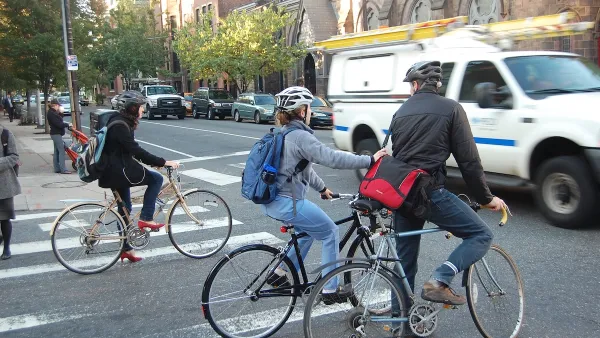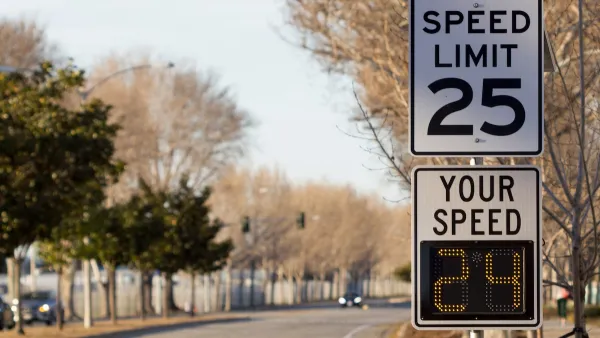The Rebuild initiative in Philadelphia depends on funding generated by a 1.5 cents-an-ounce tax on sugary beverages. The tax is in effect, but $300 million in bonds have to wait for a court decision about the tax.

Malcolm Burnley reports on the ongoing legal fight over a 1.5 cents-an-ounce tax on sugary beverages in the city of Philadelphia. The case is under consideration at the Pennsylvania Supreme Court. Meanwhile a $500 million capital investment program—known as the Rebuilding Community Infrastructure (Rebuild) initiative—for the city's public parks, rec centers, playgrounds, and libraries hangs in the balance.
"For more than a year, Rebuild has hung in suspended animation on account of a lawsuit backed by the beverage industry that’s challenging the constitutionality of the tax in court," writes Burnley. "City Hall has refused to issue the anticipated $300 million in bonds for Rebuild until (and if) the court upholds the constitutionality of the citywide levy, the financial lynchpin of the ambitious effort to better public spaces in neighborhoods that haven’t experienced much public investment in decades."
There are other causes for concern with the tax, according to Burnley. First among them is the failure o the tax to hit revenue targets in 2017. Lower than expected revenue is likely to affect the size of capital investments in the future. The article includes more details about the politics surrounding the soda tax and what the controversies mean for the city's investments in its public resources.
FULL STORY: City: 'Too soon' to say if soda tax shortfall will hit parks & rec makeover

Planetizen Federal Action Tracker
A weekly monitor of how Trump’s orders and actions are impacting planners and planning in America.

San Francisco's School District Spent $105M To Build Affordable Housing for Teachers — And That's Just the Beginning
SFUSD joins a growing list of school districts using their land holdings to address housing affordability challenges faced by their own employees.

The Tiny, Adorable $7,000 Car Turning Japan Onto EVs
The single seat Mibot charges from a regular plug as quickly as an iPad, and is about half the price of an average EV.

Seattle's Plan for Adopting Driverless Cars
Equity, safety, accessibility and affordability are front of mind as the city prepares for robotaxis and other autonomous vehicles.

As Trump Phases Out FEMA, Is It Time to Flee the Floodplains?
With less federal funding available for disaster relief efforts, the need to relocate at-risk communities is more urgent than ever.

With Protected Lanes, 460% More People Commute by Bike
For those needing more ammo, more data proving what we already knew is here.
Urban Design for Planners 1: Software Tools
This six-course series explores essential urban design concepts using open source software and equips planners with the tools they need to participate fully in the urban design process.
Planning for Universal Design
Learn the tools for implementing Universal Design in planning regulations.
Smith Gee Studio
City of Charlotte
City of Camden Redevelopment Agency
City of Astoria
Transportation Research & Education Center (TREC) at Portland State University
US High Speed Rail Association
City of Camden Redevelopment Agency
Municipality of Princeton (NJ)





























